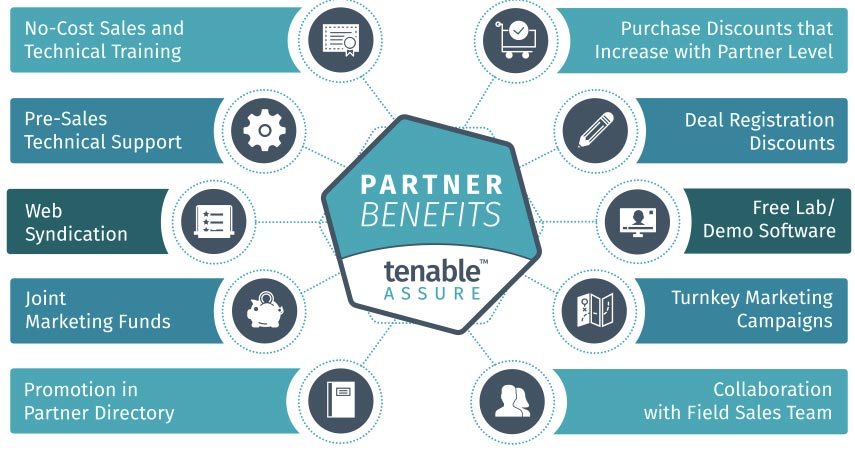What does a B2B Field Marketing Manager do?

Table of Contents
I’ve been a B2B Field Marketing Manager for years at a major tech company. It’s a very vibrant position that requires close collaboration with the sales organization. So, what does a successful Field Marketing Manager do?
A Field Marketing Manager is responsible for the demand generation in a sales territory. They have to develop a marketing strategy aligned with regional sales strategies. Moreover, they’re responsible for managing agencies and to collaborate with channel partners.
The existing part is that a Field Marketing Manager works very closely with the sales organization. Together with sales, you are developing marketing strategies that will make a significant impact on the business.
The work that you do is tangible and you see the impact fast. After helping sales to acquire new customers, you can talk to the customer and help to write customer success stories. It’s great to hear first hand how your product is delivering business value for other organizations and society.
Let’s have a look at some of the main responsibilities of B2B Field Marketing managers.
1. Define and Execute a Regional Marketing Strategy
Perhaps the most important role of a B2B Field Marketing Manager is to define a regional marketing strategy.
When developing a marketing strategy, you need to understand the ins and outs of the regional sales strategy.
For example, let’s say your sales team wants to sell to retail and manufacturing companies. It wouldn’t make sense if your marketing strategy is focused on generating leads from the finance industry.
So always discuss with regional sales directors on the marketing approach that would make sense in the current fiscal year. Many B2B companies have a named account go-to-market approach.
This means that account-based marketing will be an integral part of your Field Marketing strategy. Personally, I find account-based marketing to be amazing. With a small team, you prepare a plan to sell into a certain account. When your plan works out, it’s an amazing feeling.
After defining your marketing strategy, now it’s time to execute. There are so many different things you can do. There’s never a dull moment. Think about things such as B2B event marketing, Public Relations, Digital Marketing campaigns, collaborating with channel partners, and video marketing.
2. Collaboration with Sales
A successful Field Marketing Manager excels at building relationships with the sales organization. Your sales team is the most important stakeholder that you have within the organization.
I’ve seen at organizations that sales regions underperform when the relationship between marketing and sales is below par. On the contrary, in regions where the relationship is exceptional, they are much more successful and will reach sales targets easier.
Any B2B marketing event or campaign will fail without the collaboration of sales. Even when your event is top-notch and everything is perfect. If your sales team doesn’t follow up on the leads generated, then you won’t generate business.
A successful B2B Field Marketing Manager has the full buy-in from the regional sales team. Salespeople can be tricky to deal with. A successful Field Marketing Manager knows how to deal with salespeople and is able to push back when necessary. Because if you don’t, sales will walk right over you.
Generally, the marketing team is expected to contribute about 30% to the sales pipeline of new customers. This means that close collaboration with the sales team is an absolute must.
Research by Hubspot shows that: Misalignment between sales and marketing technologies and processes costs B2B companies 10% of revenue or more per year.
This is huge! So a successful Field Marketing Manager should be looking for ways to improve the relationship with sales.
3. Hiring and Managing a Local Marketing Team
Field Marketing teams are generally not very large. In upcoming regions, it can be as small as one Field Marketing Manager. Typically, there are about 3 people in a regional Field Marketing team.
The Field Marketing Manager is responsible for hiring top-talent and managing the team.
This means that a key responsibility is to help your team grow. A Field Marketing Manager will need to ensure that the team has the tools and resources required to train new skills.
This also means that the Field Marketing Manager should have regular meetings with the team to talk about performance and provide coaching.
4. Managing Agencies
The role of a Field Marketing Manager also includes the management of agencies. As mentioned, a field marketing team is generally quite small per region.
This means that agencies are often hired to help with certain tasks. A great example of this is Public Relationship agencies. They help with issuing regional press releases and getting your content published on regional publications.
Additionally, you might have agencies that help you out with general activities. Sometimes it’s hard to get a headcount for your region. So a great alternative is to hire an agency. This will increase the amount of work you get done in a region. This means that you are able to deliver more value for a region.
A big part of the demand generation is event marketing. Participating in external events is generally not a lot of work. But when you set up events yourself, it’s another story.
I’ve helped to set up an event where 3000 people attended. This is simply impossible to do without an agency helping you.
So a successful Field Marketing Manager should be excellent at managing agencies effectively.
5. Regional Demand Generation
The regional Field Marketing Manager is responsible for demand generation through marketing in a sales territory. As mentioned, marketing needs to source 30% of the total sales pipeline in a region.
Field Marketing Managers will define a list of demand generation tactics in their marketing strategy. Throughout the year they will execute on this and adjust the strategy where necessary.
Common demand generation strategies are event marketing, content syndication, localizing global campaigns, improving brand awareness, and digital marketing campaigns.
I’ve also written an article about the 9 best Field Marketing Strategies to increase revenue.
The most effective B2B demand generation strategy in field marketing is event marketing. This is because it allows your sales team to meet prospective customers face-to-face.
Events are often costly, so you need to have a great strategy behind them to drive the most value out of them. A best practice is to have a set of digital marketing strategies to support the event.
The best event that I’ve done generated 5 million dollars in pipeline. And this was all because of the digital marketing strategies I implemented to make the event successful.
Events are also great to bring your customers and prospective customers together. It’s perhaps the most valuable thing that you can do. Granted, if your customers are happy!
If a customer is excited about your company and willing to talk about it, then take that opportunity. The message will be much stronger than any marketing message.
6. Channel Partner marketing
A Field Marketing Manager is also responsible to integrate the local marketing strategy with partners.
Partners are an essential part of B2B companies. Without partners, B2B companies will struggle with scalability. I’m working for a large tech company and I’m actively collaborating with partners such as Deloitte and KPMG.
Of course, those are reputable companies and doing joint marketing campaigns with them enforces our message.
Doing joint marketing campaigns with partners also increases your marketing budget in a sense. Let’s say your Field Marketing budget is $100.000. If you do joint campaigns with partners, you are able to split the cost of a lot of campaigns.
This means you can do more activities with the same amount of money.
It must be noted that partners also have a strong database and network. With joint campaigns, you can benefit from that.
Channel partners are a critical part of the success of a B2B company. A successful Field Marketing Manager will build strong relationships with partners.
Here is a nice overview of the benefits of partners.

7. Customer Success Stories
I’ve briefly mentioned that customers are perhaps your most valuable asset when it comes to marketing.
This is absolutely the case.
When companies are researching your product, it’s incredibly important to show them relevant case studies. People want to understand how your product solved a business problem at a similar company.
A Field Marketing Manager helps with the development of customer success stories (case studies).
This often requires interviewing certain people at your customers. It’s important to note that you should always ask questions that shine a light on the business value you’ve generated for your customers.
Think of things such as the return on investment, the speed of development, the amount of money you’ve saved for a company.
When writing your case study, always communicate these business values first. This is what is interesting to prospective customers.
I’ve mentioned that event marketing is a key strategy to generate demand in a sales territory. I’ve got a bunch of best practices and one of them is to invite your customers to speak during keynote presentations at events.
This is so powerful and it should always be the aim of a Field Marketing Manager to facilitate this. Again, when a customer is talking about your product or service, it’s much more powerful than a marketing message.
A successful Field Marketing Manager excels at integrating customers in a local demand generation strategy.

Share this article




Thanks for the useful information.Its amazing